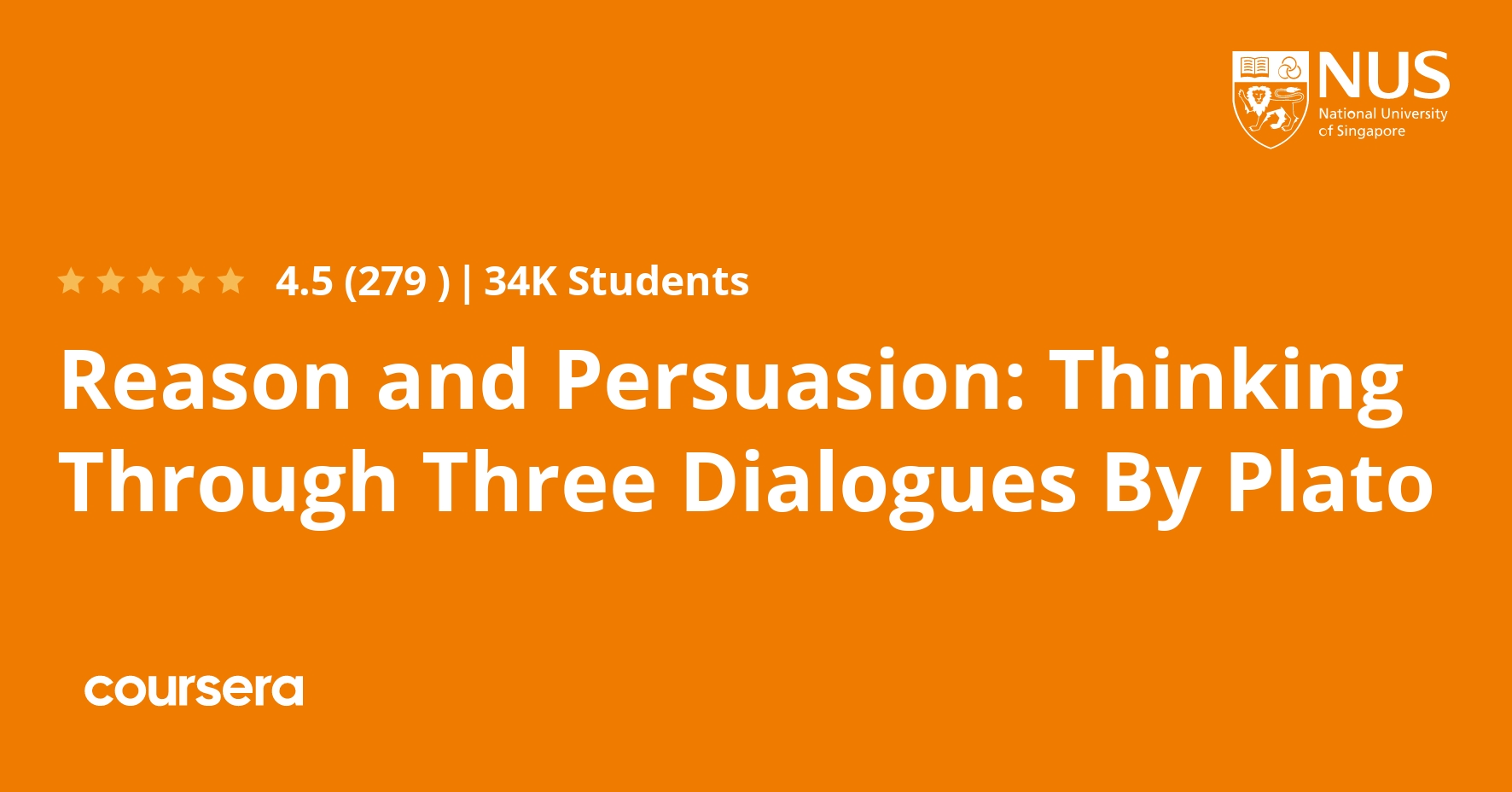Description
In this course we study the ancient, Socratic art of blowing up your beliefs as you go, to make sure they’re built to last. We spend six weeks studying three Platonic dialogues – “Euthyphro”, “Meno”, “Republic” Book I – then two weeks pondering a pair of footnotes to Plato: contemporary moral theory and moral psychology.
Platonic? Socratic? Socrates was the teacher, but he said he never did. Plato was the student who put words in his teacher’s mouth. You’ll get a feel for it.
We have a book: the new 4th edition of “Reason and Persuasion”, by the instructor (and his wife, Belle Waring, the translator.) It contains the Plato you need, plus introductory material and in-depth, chapter-length commentaries. (Don’t worry! John Holbo knows better than to read his book to the camera. The videos cover the same material, but the presentation is different.)
The book is offered free in PDF form – the whole thing, and individual chapter slices. It is also available in print and other e-editions. See the course content for links and information.
The course is suitable for beginning students of Plato and philosophy, but is intended to offer something to more advanced students as well. We seek new, odd angles on old, basic angles. Tricky! The strategy is to make a wide-ranging, interdisciplinary approach. Lots of contemporary connections, to make the weird bits intuitive; plus plenty of ancient color, still bright after all these years. So: arguments and ideas, new possibilities, old stories, fun facts. Plus cartoons.
The results can get elaborate (some book chapters and some lesson videos run long.) But each video comes with a brief summary of its contents. The lessons progress. I put them in this order for reasons. But there’s no reason you can’t skip over and around to find whatever seems most interesting. There are any number of self-contained mini-courses contained in this 8-week course. You are welcome to them.
Plato has meant different things to different people. He’s got his own ideas, no doubt. (Also, his own Ideas.) But these have, over the centuries, been worn into crossing paths for other feet; been built up into new platforms for projecting other voices. (Plato did it to Socrates, so fair is fair.) So your learning outcome should be: arrival somewhere interesting, in your head, where you haven’t been before. I wouldn’t presume to dictate more exactly.
What you will learn
Plato’s Euthyphro I: Bad Dads, Good Arguments
We start with Plato’s “Euthyphro”, a short dialogue in which Socrates debates the nature of holiness with a priest, Euthyphro. (The Bad Dad is Euthyphro’s. Maybe. If he’s a murderer. Do you think he’s a murderer?) But mostly the videos for this first week and general and introductory. Plato, Socrates. Who are they? How should I read? For more detail, click “Advice About Reading”, under “Overview”, below.
Plato’s Euthyphro II: Two Problems
This is our second week reading “Euthyphro”. (But we hardly got into it last week!) The two problems are: 1) Should Euthyphro do? 2) What is holiness? Mostly the dialogue concerns 2) but 1) is there for a reason. Suppose a friend asks you for advice: ‘I think dad murdered someone. What should I do?’ Probably you wouldn’t pull down the dictionary and look up ‘holiness’, right? But why not? Food for thought. This lesson also contains quite a bit of background about ancient Greek religion and law.
Plato’s Meno: What is Virtue?
We’re moving on to our next dialogue, Plato’s “Meno”. Meno is a slick fellow: sophist-in-training. He wants to know whether Socrates thinks virtue can be taught. Socrates doesn’t even know what it is! Meno doesn’t see the problem. He can talk about this stuff! But his tongue gets stung numb by the Socratic stingray. Overall, the dialogue has a peculiar virtue-geometry-virtue structure. And we meet two more characters: the boy, who learns geometry; the sturdy citizen, Anytus, who doesn’t trust sophists. In this first “Meno” lesson, we don’t get past the poetry that introduces the geometry. (What’s with that?) We consider difficulties defining ‘virtue’, and whether definitions are a good thing to ask for. We consider some oddities about virtue. Why does everything think they know what it is? And: is there any science around here?
Plato’s Meno: Virtue – Geometry – Virtue.
We are still working on Plato’s “Meno”. This week we get to the geometry lesson and Socrates’ tentative definition/formula for success: virtue is mindfulness. That means: when you do things, you do them for the right reasons, and with knowledge of those reasons. That sounds good, but it’s kind of a high bar for humans to clear. Could it turns out that there is such a thing as virtue, only none of us have it?






